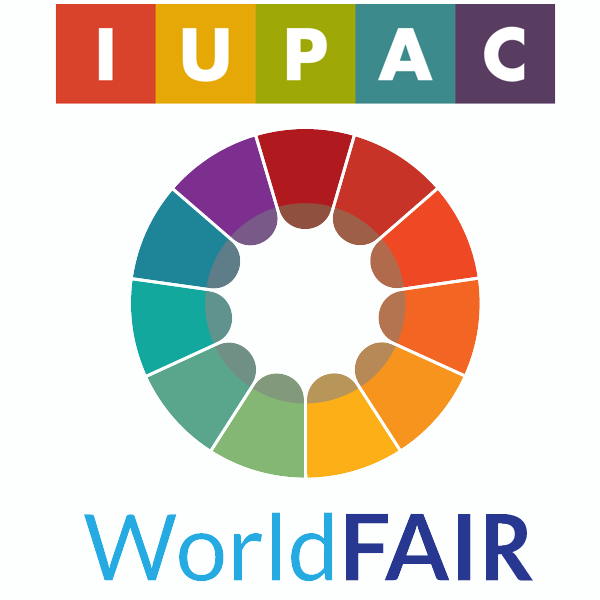About this project#
This website is the product of the WorldFAIR D3.3 project, one of three deliverables under the Chemistry case study developed by the IUPAC Committee on Publications and Cheminformatics Data Standards (CPCDS for the WorldFAIR initiative (see below). The IUPAC FAIR Chemistry Protocols are intended to support the broader community in adoption of standards for programmatic exchange of chemical data. The site is designed to be a living resource through the addition of new content as strategies for implementing FAIR evolve and the sharing and reuse of FAIR chemical data continues to increase.
WorldFAIR D3.3 Objective#
Representing chemical substances in structure form is one of the most critical functions in communicating chemistry, including sharing FAIR and machine-readable chemical data, as many resources are indexed by chemical structures. There are a range of approaches for articulating chemical substance information, depending on the scientific nature and context, and the digital motifs used in chemical databases and chemicals software, present additional layers of complexity. Chemical interpretation can vary between data systems and directly impact downstream reuse, especially when it comes to representation and analysis of associated data. Validation of chemical description is an essential requirement for the re-usability of chemical data, including discovery and in many modeling and predictive AI/ML applications.
This project aims to develop web-based services that confirm chemical identity and provide real-time feedback on the machine-readability of chemical data and metadata representation, based on IUPAC standard rule sets and recommended best practices.
WorldFAIR D3.3 Scope of Work#
The main scope of work will be to define a common protocol for resolving different chemical representations. The specification will articulate a shared data model for information exchange through an API that can be implemented by any system that manages chemical records. Users will be able to query registered resources with different scopes and capabilities at a general level to determine where they can find additional data and information. The model will cover a range of chemical representations, including structural diagrams, nomenclature and other linear notations. The protocol will also provide a standard set of error codes for flagging ambiguous or conflicting representations.
WordFAIR Initiative#
The Committee on Data of the International Science Council (CODATA) and the Research Data Alliance (RDA) have recently launched the WorldFAIR Initiative to advance implementation of the FAIR data principles within and across research domains. The International Union of Pure and Applied Chemistry (IUPAC), known as the world authority on chemical nomenclature, terminology, and standardized methods of measurement, is leading the WorldFAIR Chemistry project in a concerted effort through collaboration with related disciplines and data science communities to support broader data sharing of chemical data. The goal of WorldFAIR Chemistry is to support the use of chemical data standards in research workflows to enable downstream data reuse through practical direction and resources.
WorldFAIR “Global cooperation on FAIR data policy and practice” is funded by the EC HORIZON-WIDERA-2021-ERA-01-41 Coordination and Support Action under Grant Agreement No. 101058393.
